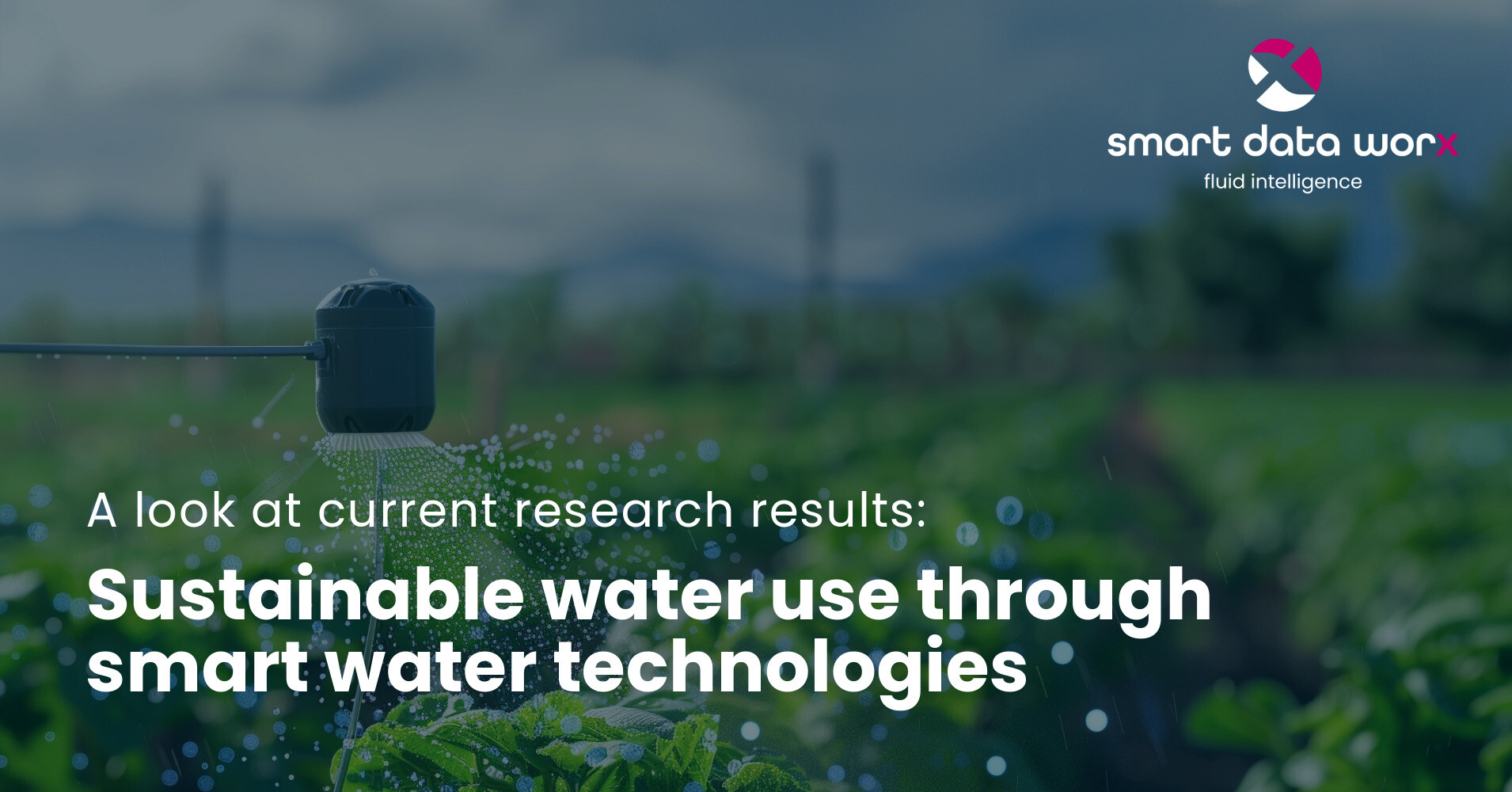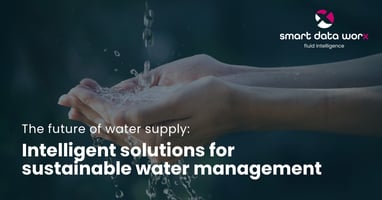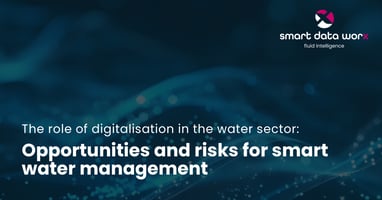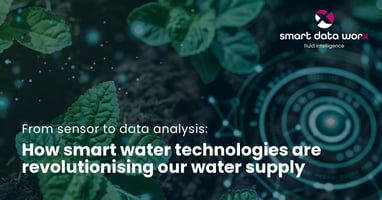Water is the elixir of life on earth, indispensable for humans, animals and plants. Global warming,...
Sustainable water use through smart water technologies: A look at current research results

The sustainable use of water resources has become a key challenge in view of global environmental problems such as climate change and water scarcity. The use of intelligent water supply systems (smart water technologies) offers promising solutions to increase the efficiency of water utilisation and at the same time protect the environment. This blog post looks at the sustainability aspects of smart water technologies, current research trends and the potential of these technologies for environmental protection and resource efficiency.
Sustainability aspects of intelligent water supply
The sustainability of smart water supply systems involves several core principles: optimising water use, reducing water losses, improving water quality and conserving resources.- Optimising water use: Smart water technologies enable more precise recording and analysis of water consumption. Intelligent water meters (smart meters) provide consumption data in near real time, which can be used to identify and correct inefficient usage patterns. This optimises water consumption. In addition, data analyses and machine learning can be used to make predictions about future water requirements, enabling even more efficient planning and use of water resources.
- Reduction of water losses: A large proportion of water is lost in conventional supply networks due to leaks. Sensors and IoT devices can identify leaks in real time and inform the relevant authorities so that repairs can be carried out quickly. This makes a significant contribution to reducing water losses. In addition, effective pressure management can lower the pressure in the pipes at times of low consumption, which also helps to reduce water loss.
- Improving water quality: Intelligent systems continuously monitor water quality and can take immediate action in the event of deviations. This ensures that consumers have access to clean and safe drinking water at all times. By reducing nutrient inputs from agricultural runoff, wastewater treatment plants and industrial processes, the operation of wastewater treatment plants can be optimised and phosphorus and nitrogen pollution can be further minimised, leading to a long-term improvement in water quality.
- Conservation of resources: The integration of renewable energies and the use of innovative technologies for water treatment and reuse reduce the use of resources. This not only contributes to sustainability, but also reduces operating costs. The careful use of natural resources such as water, soil and energy is crucial for environmental protection and sustainability. Through conscious consumption and innovative recycling methods, we can reduce the burden on our planet while ensuring quality of life for future generations.
Current research trends
Research in the field of intelligent water technologies is developing rapidly. Some current trends are:- Artificial intelligence and machine learning: Artificial intelligence and machine learning are increasingly being used to analyse large amounts of water data and create predictive models. These models can be used to optimise water consumption, predict maintenance needs and detect irregularities in water networks. They also enable the development of adaptive systems that automatically adjust to changing conditions and thus further increase the efficiency and reliability of the water supply.
- Blockchain technology: Blockchain offers the possibility of documenting water transactions securely and transparently. This is particularly relevant for the traceability of water quality and the billing of water consumption and strengthens consumer confidence. In addition, blockchain technology can help to improve the management of water rights and licences by providing a tamper-proof and transparent record of all transactions and agreements.
- Internet of Things (IoT): IoT devices connect sensors and control systems to enable ongoing monitoring and control of the water supply. This technology is becoming cheaper and more accessible, which is encouraging its spread. By integrating IoT into water supply systems, operators can obtain real-time data on infrastructure health and water consumption, enabling proactive maintenance and faster response to problems.
- Nano- and biotechnology: Advances in nano- and biotechnology are enabling new methods of water treatment and purification. For example, nanotechnological filters can remove pollutants from water more efficiently, while biotechnological approaches use microorganisms to break down pollutants. These technologies offer innovative solutions for the treatment of wastewater and the reuse of water, which helps to conserve water resources and improve water quality.
Potential for environmental protection and resource efficiency
The integration of smart water technologies has enormous potential for environmental protection and resource efficiency:- Reducing the ecological footprint: the efficient use of water and the reduction of losses reduce the ecological footprint of water supply systems. This is particularly important for regions that already suffer from water scarcity. By using water saving and reuse technologies, water consumption can be significantly reduced, leading to a reduction in energy consumption and CO2 emissions. This helps to conserve natural resources and reduce environmental impact.
- Protection of water resources: Intelligent monitoring systems can help to limit the impact of pollutants on water resources. Early detection of pollution and rapid countermeasures improve the condition of rivers, lakes and groundwater. By using sensors and IoT technologies, potential sources of pollution can be quickly identified and eliminated. This helps to maintain water quality and protect human and environmental health.
- Promoting the circular economy: Wastewater reuse and rainwater harvesting technologies help to promote the circular economy. The multiple use of water reduces the need for fresh water, which helps to conserve resources. The reuse of treated wastewater for agricultural irrigation and industrial processes reduces the extraction of fresh water from natural sources and minimises the strain on water resources.
- Energy management: Intelligent water supply systems can optimise energy consumption, for example by adapting the use of pumps and other energy-intensive devices to actual demand. This reduces CO2 emissions and supports sustainability goals. The implementation of energy management systems and the use of renewable energies can further reduce energy consumption and increase the efficiency of water supply systems.
Conclusion
The future of water supply will be significantly characterised by smart water technologies. These innovative approaches offer a wide range of opportunities to increase the efficiency of water use, minimise water losses and improve water quality. Current research trends such as artificial intelligence, blockchain, IoT and nano- and biotechnology are fuelling development and opening up new potential for environmental protection and resource efficiency.
The sustainable use of water is not only a technical challenge, but also a social task. By using modern technologies and using our water resources consciously, we can make an important contribution to protecting our planet. It is up to us to seize the opportunities and develop and apply intelligent water supply systems to ensure a sustainable and safe water supply for future generations.


